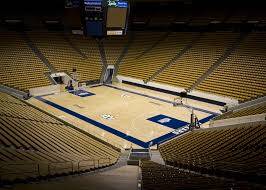

In fact, as ticket prices have continued to climb across the entire sporting industry, the relationship between the fan and the team has sprouted a middleman: that of the corporation. Companies globally buy 124 million tickets a year as “business drivers,” adding up to some $16 million in revenue for arenas.
This is not an article to disparage this fact. Instead, this data well-positions sports arenas to take advantage of the business acumen filling up their seats on a more and more regular basis. In essence, with so many business-people coming to games to close deals or foster a sense of company collaboration, arenas have the opportunity to turn stadiums into business spaces that deliver the necessary business experience to close a deal. And, the relationship is a two-way road, packing a punch where it most matters: the ability to pull in premium sponsors.
What’s the Hold Up?
Currently, there is only one problem standing in the way of arenas looking to provide intense customer experience satisfaction to the corporations that consistently purchase tickets, and Casey Wasserman, sports agent executive and owner of the former Arena League football team, the Los Angeles Avengers, defined this problem best when speaking at the 2014 World Sports Conference:
“We don’t know who’s in the stadium, despite all the data we have available to us. And this needs to change.”
He’s right: in order to improve any customer experience, you must first know who the customer is. In sports, because attendance is based on ticket sales rather than actual event attendance, and because corporations often buy tickets in bulk, it is difficult, if not impossible, to know exactly who is sitting in those seats. The data just doesn’t exist.
But there’s a way around this double-edged sword: WiFi. Via fast, reliable and convenient WiFi access, stadiums are beginning to create in-arena business networks through which teams are getting directly involved in supporting and connecting the business community through collaborative spaces, networking events and more. The WiFi, offered through a secure LinkedIn authentication, provides the on and offline capabilities to create customized experiences that cater to the unique business communities congregating at each arena.
This is how you solve the data deprivation problem and figure out exactly who is enjoying your premium seats. Better yet, world-class arenas are already beginning to take advantage of their new professional fans.
Turning the Sports Arena into a Business Venue
Dave Howard of Madison Square Garden Sports spoke in great detail at Leaders on aspects of the arena experience, explaining that the results of fan surveys overwhelmingly revealed that one of the top uses for MSG was as a “place to do business.” The fan feedback resulted in the inclusion of additional meeting-friendly areas within the $1 billion renovations already underway at MSG. This included improving the WiFi connection – the modern businessperson’s gateway to working remotely.
Over at Fedex Stadium, the Redskins are leading the NFL to a data-driven in-arena experience by adding WiFi connection to club seats and business meeting areas where the corporate fan experience will be bettered. Here, it’s about convenience, connect-ability and knowing who is in your premium seats.
Boston’s TD Garden is also taking advantage of their professional fans, teaming up with LinkedIn to develop a business network within the arena. By providing high-speed WiFi service within the Garden’s professional LinkedIn Lounge, attendees can login to WiFi via LinkedIn social authentication. Then, using Umbel’s platform, the collected professional data is segmented and visualized for TD Garden’s business strategy team, giving them unique insights into exactly who is coming to the game and how to leverage better sponsorships in accordance with those attendees’ professional interests.
In short, the arena has created the TD Garden Business Network and, using LinkedIn data, will further explore catering to its professional audience via networking opportunities for those in similar industries, offering competitive packaging with sponsor brands with which the audience has a high affinity (like PGA, for instance), and offering the best in class experience through known drink and food affinities so that if the audience really likes Jack Daniels, they make sure to have it on hand.
Today, the opportunity to better the in-arena experience, one that is tailored for exactly how the fans use the space, is bigger than ever before. In the future, the sports arena or stadium may very well become the preferred business venue.